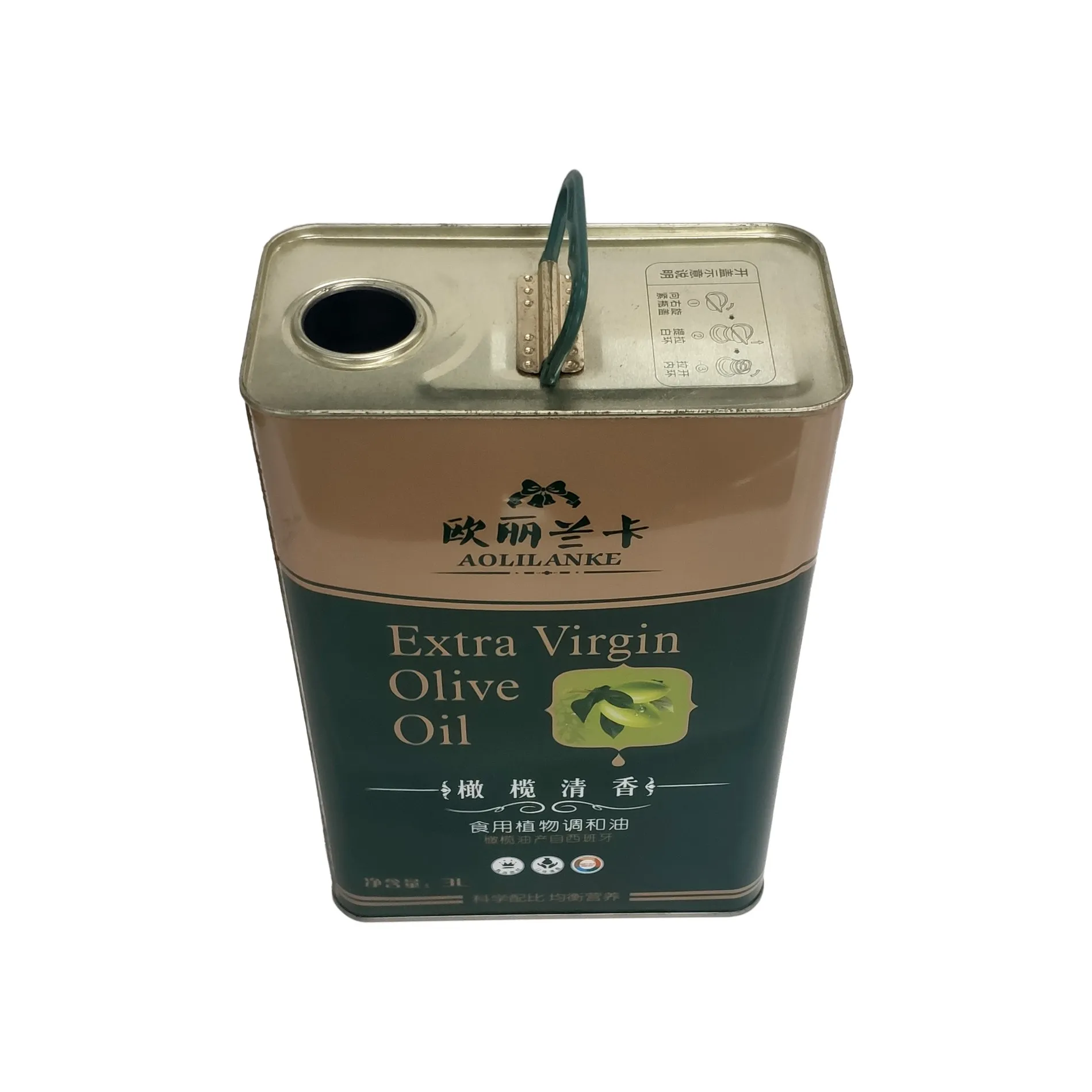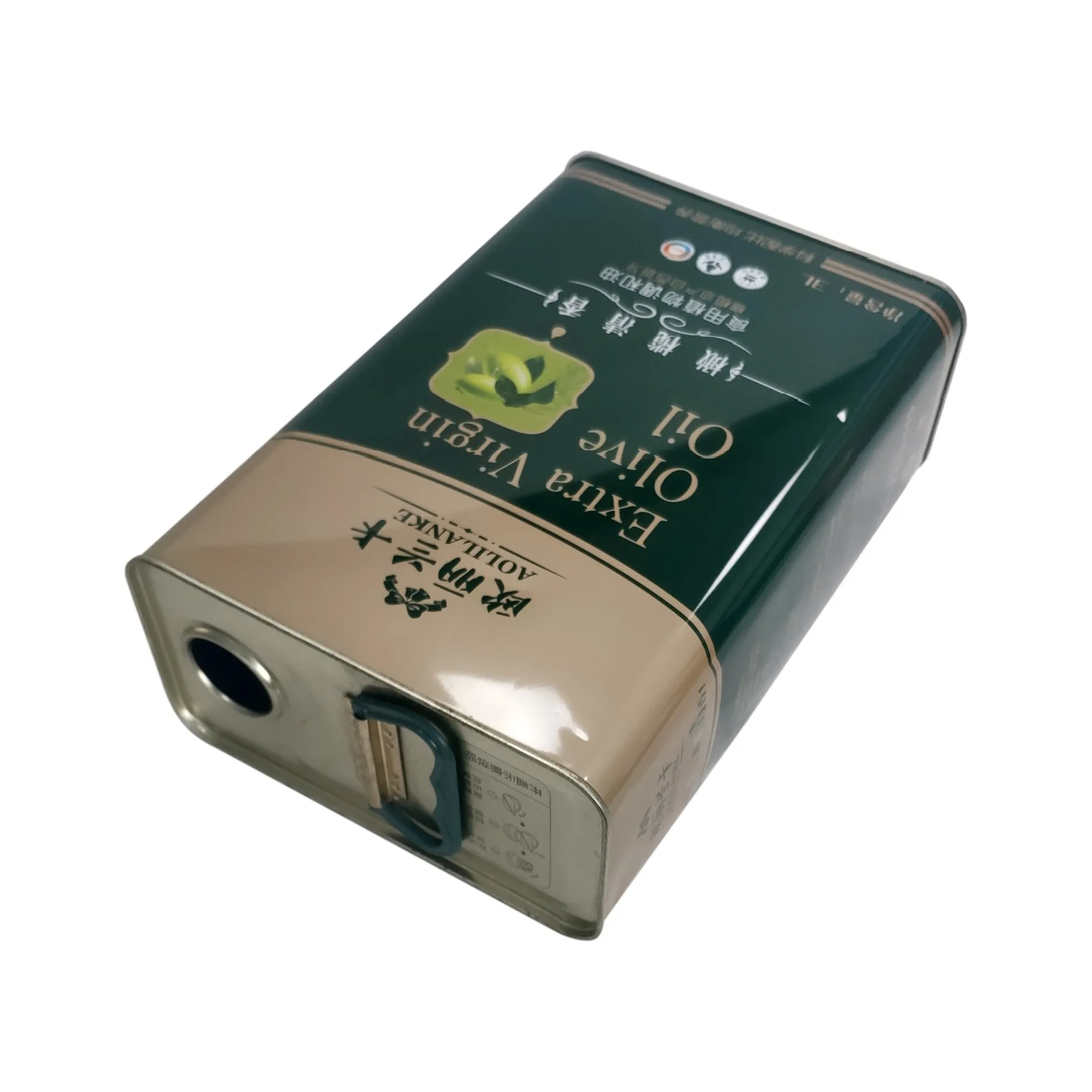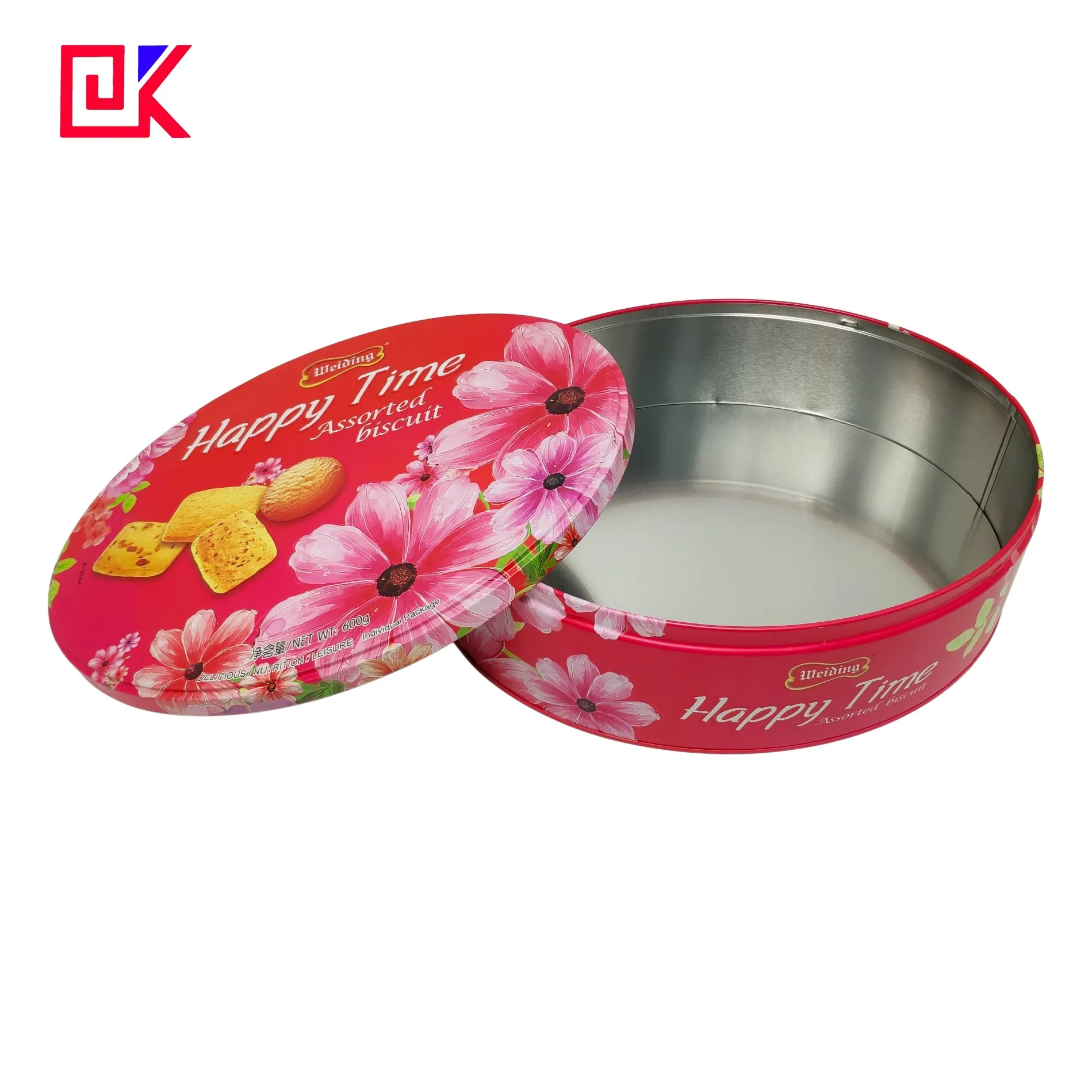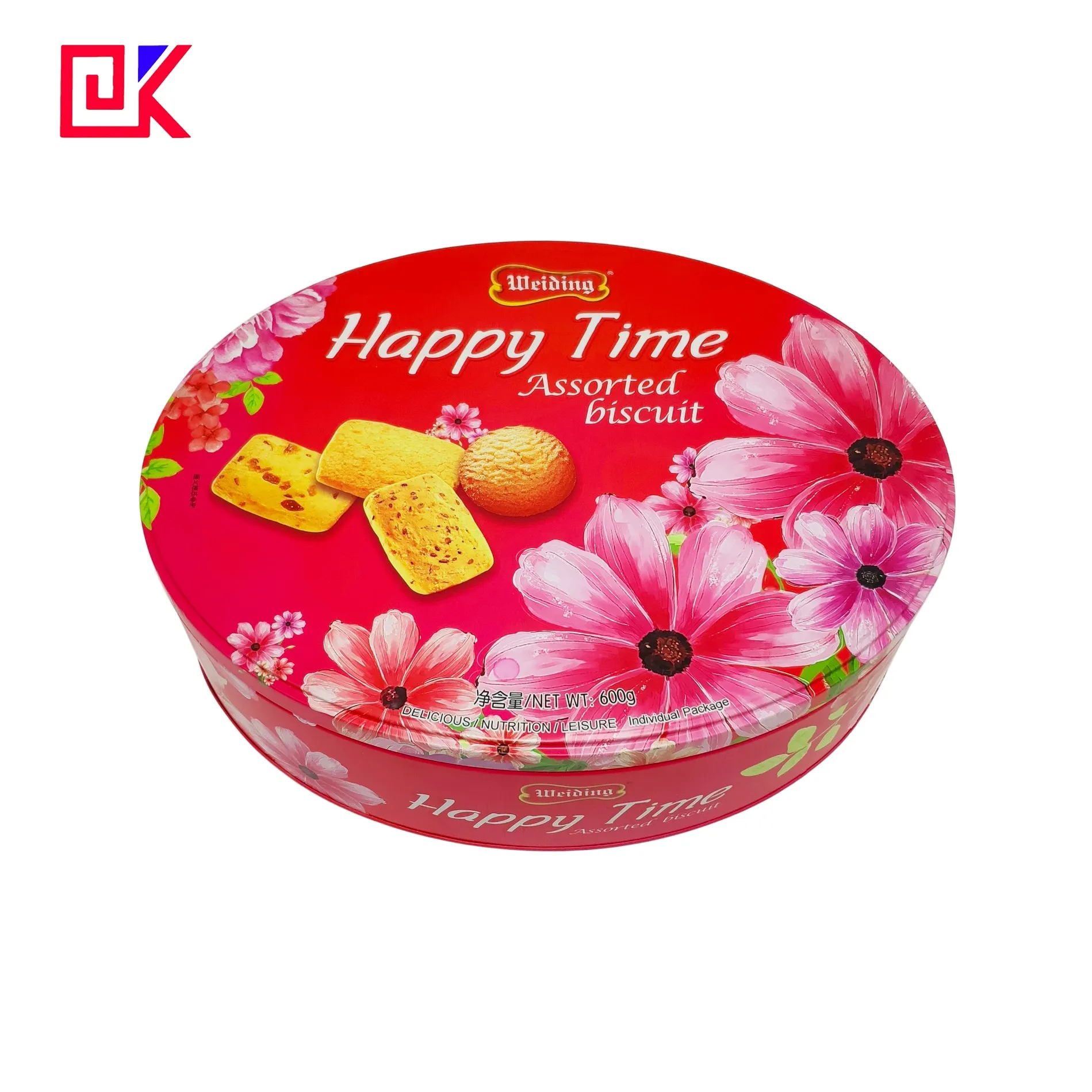In the modern food packaging industry, metal cans are an important packaging container, widely used for canned foods, beverages, infant formula, and other applications. Due to their excellent sealing, durability, and corrosion resistance, they have become a mainstream material for food packaging.
With technological advancements and increasing consumer concern for packaging safety, questions have arisen about the internal structure of metal cans: Are there plastic components in these cans? What is the role of plastic in metal cans? How does plastic affect food safety and quality?
This article will explore the presence and function of plastic in metal packaging cans from multiple perspectives.

What is the basic structure of metal packaging cans?
Metal packaging cans are primarily made of metal materials, commonly including tinplate (tin-plated iron) and aluminum. Metal cans not only offer excellent mechanical strength and the ability to withstand external pressure, but also effectively prevent contamination of food from air, moisture, and other external factors. However, metals are inherently chemically active, especially when storing acidic or alkaline foods. They can easily react with the contents, leading to corrosion of the can or spoilage of the food. Therefore, to ensure food safety, the internal structure of metal cans often undergo additional treatment.
1. Tinplate Can Structure
Tinplate cans are one of the most common metal packaging options for food, particularly for canned foods and beverages. Tinplate cans are made of thin steel plates coated with a layer of tin. Tin is a chemically stable metal that effectively prevents steel from reacting with acids and alkalis in the environment or in food. However, the protective effect of the tin layer is limited, especially when storing acidic foods, where there is a risk of tin corrosion. Therefore, during the production process, a protective coating or lining is often added to the inner surface of tinplate cans to further prevent direct contact between food and metal.
2. Aluminum Can Structure
Aluminum cans, as a lightweight and corrosion-resistant packaging material, are widely used for beverages, beer, and certain foods. Aluminum itself has good oxidation resistance, and a dense aluminum oxide film forms on the surface of the can, providing some protection. However, aluminum can still react chemically when exposed to certain acidic or alkaline substances. Therefore, to enhance the durability and safety of aluminum cans, the inner surface also requires a protective coating to prevent direct contact between the contents and the metal.

Why are plastic liners used in metal cans?
Plastics do play an important role in many metal cans used for food packaging, particularly as lining materials. Plastic liners play a key role in protecting food safety and can durability. Here are several key functions of plastic liners in metal packaging cans:
1. Preventing Metal Corrosion
When metal cans come into direct contact with food, especially with acidic foods (such as ketchup and juice) or alkaline foods (such as some pickled foods), the metal surface inside the can may corrode, causing the can to lose its seal and even risk harmful metal ions entering the food. Plastic liners, acting as a physical barrier between the metal and the food, effectively prevent this chemical reaction.
Common lining materials include epoxy resin, polyester, and polyethylene. These materials are stable in high-temperature and humid environments, resist degradation, and provide long-lasting protection for both the can and the food.
2. Maintaining Food Flavor and Quality
Food packaging must not only consider physical and chemical safety but also ensure that the flavor, texture, and nutritional content of the food are not destroyed during the packaging process. Metal linings may react with certain food ingredients, altering the taste or odor of the food. Plastic linings effectively prevent food from coming into contact with the metal surface, preventing any unpleasant odors or texture changes caused by the metal, thereby preserving the food's original flavor.
3. Improving the Sealing Performance of the Can
Although metal cans inherently possess strong mechanical properties, they may be subject to environmental influences such as temperature fluctuations and physical stress during manufacturing, transportation, and storage, which can affect their sealing performance. The flexibility and pressure resistance of plastic lining materials can further enhance the can's sealing performance, preventing leakage of contents and air infiltration.

What are the commonly used plastic lining materials?
A wide variety of plastic lining materials are used in metal packaging cans, but they must all meet safety standards for food contact materials. The following are several common lining materials:
1. Epoxy Coating
Epoxy resin is a widely used plastic lining material with excellent corrosion resistance and adhesion. It is stable under high temperature conditions and is therefore often used in metal packaging for canned foods. However, epoxy coatings may contain bisphenol A (BPA), a chemical that may pose health risks in some cases. Although many countries and regions have restricted the use of BPA, epoxy resin remains one of the most common metal can lining materials on the market.
2. Polyester Coating
Polyester is a BPA-free coating material that is becoming a popular choice for food-grade packaging. Compared to epoxy resin, polyester coatings offer improved clarity and toughness, as well as better corrosion resistance in acidic foods. They are commonly used in packaging juices, carbonated beverages, and certain canned foods.
3. Polyethylene (PE) Coating
Polyethylene is another common plastic lining material with excellent water and chemical resistance. The main advantages of polyethylene coatings are their low production cost and high chemical stability, making them suitable for packaging non-acidic or alkaline foods such as dried fruits and biscuits. Polyethylene liners are commonly used in aluminum cans and certain types of tinplate cans.

Is the plastic in metal cans safe?
Consumers are increasingly concerned about the safety of packaging materials, especially plastics. Given concerns about the potential for harmful substances to leach from plastic packaging, whether the plastic coating inside metal cans affects food safety has become a hot topic of discussion.
1. Strict Regulation of Food Contact Materials
First, all plastic lining materials used in food packaging must undergo rigorous food safety testing to ensure they do not release harmful substances under conditions such as high temperatures and acidic and alkaline environments. For example, the US Food and Drug Administration (FDA), the European Food Safety Authority (EFSA), and the China Food and Drug Administration (CFDA) have specific regulations to ensure the safety of food contact materials.
Whether epoxy resin, polyester, or polyethylene, these materials must undergo a series of toxicology and migration tests before entering the food packaging market to ensure they do not negatively impact food safety during long-term storage and use.
2. The Controversy over Bisphenol A (BPA)
In the discussion of plastic linings, bisphenol A (BPA) is a chemical that has attracted considerable attention. BPA is commonly found in epoxy resin coatings. While epoxy resins can effectively prevent corrosion on cans, BPA can migrate into food under certain conditions. Long-term exposure to BPA may pose potential risks to human health.
Currently, many countries and regions around the world have strictly restricted or banned the use of BPA. Many food manufacturers are also seeking BPA alternatives and developing BPA-free coating materials, such as polyester and BPA-free epoxy resin, to ensure packaging safety.
3. Durability and Environmental Issues of Plastic Coatings
While plastic coatings can effectively extend the lifespan of metal cans, some environmental groups have raised concerns about their long-term environmental impact. Plastic coatings can pose challenges in can recycling, as metal cans require high-temperature heating to remove the plastic layer. This process, if not handled properly, can release harmful gases.
Do you offer wholesale pricing for international buyers?
Yes, we offer wholesale tinplate packaging solutions for global clients. Dekai provides bulk pricing discounts and custom quotes based on your order volume. Our high production capacity of over 300 million pieces per year ensures stable supply even for large orders. Whether you’re sourcing for resale or production, Dekai is a trusted Chinese manufacturer for wholesale metal packaging.

